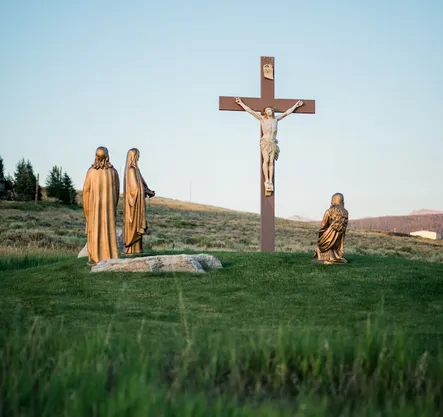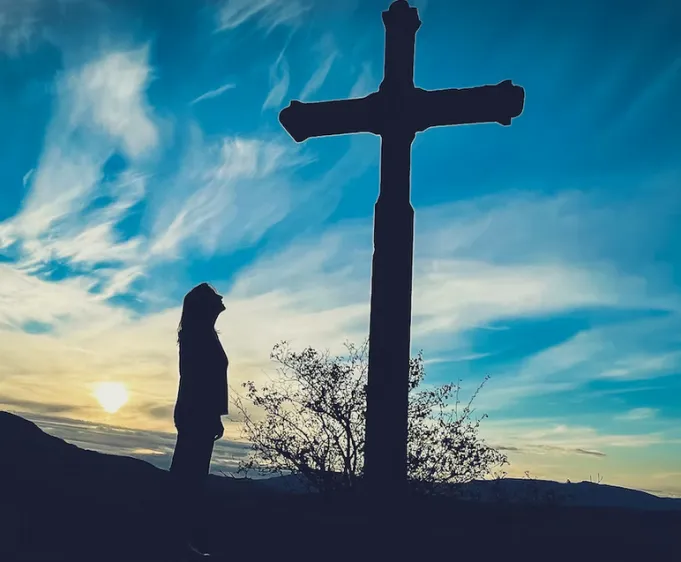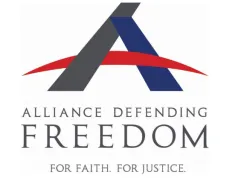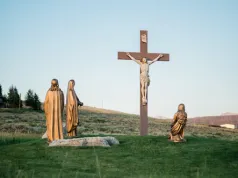The topic of abortion is always controversial – it brings in ethical, societal and legal arguments, and continues to polarise opinions.
Christianity – the world’s most popular religion, has always had a complex relationship with abortion. This is primarily due to the fact that there are differing opinions by each denomination. Given that there are a huge number of denominations, this is hardly surprising.
In this article, we look at the major denominations and their stance on abortion.

Roman Catholicism
Catholic Church
Unsurprisingly, the Catholic Church takes a strong pro-life stance. Central to the Catholic Church is the belief in the sanctity of life – that all life is precious.
As the Catholic Church believe that life begins at conception – therefore abortion is seen as wrong, as it goes against the sanctity of life. Abortion involves a foetus being destroyed – disobeying the sanctity of life.
Having an abortion triggers an immediate excommunication from the Church for any Catholic. The only instance where the Catholic Church allow abortion is when the pregnancy threatens the life of the mother.
In the wider picture, many Catholics have different opinions to that of the official position adopted by their Church.
Eastern Orthodoxy
Eastern Orthodox Church
Following a similar stance to the Catholic Church – the Eastern Orthodox Church teaches that life begins at conception. Therefore, the act of abortion is tantamount to murder – and the taking of a human life. T
he Eastern Orthodox Church however doesn’t excommunicate members who have an abortion. However, they insist the woman must confess her sins.
A document of the Church speaks of the importance that the Church and society should be able to come up with ‘effective measures’ to protect motherhood.
Latter Day Saint Movement
Church of Jesus Christ of Latter-Day Saints (Mormonism)
Better known as Mormons, the Church of Jesus Christ of Latter-Day Saints mainly adopts an anti-abortion stance.
They too follow the Sanctity of Life, though they have no concrete belief in when human life precisely begins. Mainly though, abortion is not tolerated.
Church members are urged to speak to local Church leaders prior to deciding on an abortion, and are encouraged to pray, and to ‘feel’ that their ‘decision is correct’.
The Church does allow abortions under certain circumstances – such as an individual being the victim of rape or incest, when the mother’s or baby’s life is at risk.
Community of Christ (Reorganized Church of Jesus Christ of Latter-Day Saints)
The Community of Christ – who separated from the Church of Jesus Christ of Latter-Day Saints in 1860 – are the second biggest denomination in the Latter-Day Saint movement.
They generally suggest a woman has the right to decide in her choice. The Community of Christ is often seen as a highly-progressive Church in terms of its treatment of women – including polygamy never being practiced (unlike most Latter-Day Saint denominations), and championing women’s participation in the Church to the extent where women hold senior leadership positions in the Church.
Finally, the Community of Christ has also encouraged participation from the LGBTQ+ community – again something that is rare within Christian Churches.
Protestant: Baptist Churches
Southern Baptist Convention
The Southern Baptist Convention – which is currently the largest Protestant denomination in the United States – once championed pro-choice.
The Church welcomed the landmark Roe v. Wade case, with the President of the Convention at the time stating that only when a child is born, are they considered a separate life.
But opinion since has changed dramatically. In the 1980s, a new position was adopted – where abortion was only permissible when the life of the mother was at risk. This stance continues to this day.
In the modern age, the Southern Baptist Convention is one of the most pro-life denominations of all – having gone from pro-choice to arguably leading the charge for the pro-life movement.
American Baptist Churches USA
The American Baptist Churches USA, previously known as the Northern Baptist Convention, is another popular Protestant denomination. As the denomination represents an array of different Churches, they don’t have a set position.
In the American Baptist Churches’ resolution, abortion is prohibited for avoiding responsibility for conception, as a primary means of birth control, or without regard for the consequences of their act.
But they do grieve with all those who struggle with the circumstances that leads to them to considering abortion. They encourage people to seek spiritual counsel as they come to a decision.
National Baptist Convention
A huge range of churches are part of the ‘Baptist Churches’. But generally, these Churches all adopt a pro-life stance. But, the American Baptist Churches’ General Board – which governs a large amount of Churches, doesn’t condemn abortion completely.
But they do urge women and couples who are considering having an abortion to consider their decision, especially in a spiritual way. This position is largely neutral, although they just about place as a pro-life range of Churches.
Protestant: Pentecostalism
Assemblies of God, Church of God in Christ and Church of God (Tennessee)
One of the most fervent supporters of the pro-life movement are Pentecostal Churches. It is arguable too that Pentecostals align with the Catholic Church as being the staunchest supporters of pro-life.
The three major Pentecostal churches – the Assemblies of God, Church of God in Christ and the Church of God (Tennessee), all oppose abortion.
All three adopt a position where abortion is forbidden, with the only case where an abortion is allowed if it is necessary to save the life of the mother. All Pentecostal Churches align with this stance, with next to no exceptions.
Protestant: Anglicanism
Church of England
In general, the Anglican community has a very polarised stance on abortion. However, the Church of England is opposed to abortion. They see the act as a termination of life.
But the Church does suggest in its resolutions that there are some conditions that abortion may be “morally preferable”, but in all cases, abortion should be “strictly limited”.
Episcopal Church
Conversely, the Episcopal Church opposes any law that stops a woman being able to have an abortion. Therefore, they have a more relaxed opinion on abortion.
However, they only condone abortion in cases of incest, rape, physical/mental health of mother is at risk, or in the case of foetal ‘abnormalities’.
Around the world, other Anglican Churches remain polarised. Many Churches are pro-life, while some are pro-choice. Others, like the Anglican Church of Australia, take a neutral stance.
Protestant: Lutheranism
Evangelical Lutheran Church in America
The stance of Lutheran Churches is mixed. There are three major denominations within Lutheranism – with the largest church being the Evangelical Lutheran Church in America.
The Evangelical Lutheran Church in America are generally pro-choice, though they insist that regulation should exist for abortion. Once the foetus is ‘viable’, they forbid abortion, up until then, it is accepted.
They campaign against outlawing abortion, stopping contraception laws, and suggest women with unintended pregnancies should receive the required information to make an informed decision.
Lutheran Church-Missouri Synod
The Lutheran Church-Missouri Synod is pro-life. They view Abortion as not being a “moral option”. They do however allow abortion in the case of a mother’s life being at risk.
They stop short of allowing abortion for rape and incest – suggesting that the innocent victim (the unborn child), shouldn’t be punished for the crime of the father.
Wisconsin Evangelical Lutheran Synod
Finally, the Wisconsin Evangelical Lutheran Synod adopt a pro-life stance, stating that taking a life is contrary to the teachings of the Bible – including the commandment ‘thou shalt not kill’. They do allow abortion when the life of the mother is at risk.
Protestant: Methodism
United Methodist Church
Similar to other denominations discussed, the Methodist branch of Christianity has a diverse array of opinions. The United Methodist Church is the biggest denomination within Methodism.
The United Methodist Church largely takes a neutral, sometimes unclear, stance. A landmark decision within the United Methodist Church came in 2016, when the Church withdrew from the Religious Coalition for Reproductive Choice.
As the name suggests, this coalition was pro-choice. Following this, the Church labelled abortion as ‘violent’, stating that the act shouldn’t be carried out for ‘trivial reasons’.
Yet the Book of Discipline – a book that governs the laws of the Church – continues to support ‘safe and legal’ abortions, and campaign for women who have had abortions to receive help if required. The Church is therefore very split.
Methodist Church of Great Britain
As for the Methodist Church of Great Britain, they largely have a pro-life stance. They aim to provide support for mothers – therefore supposedly reducing the need for abortions to be carried out.
They state abortion shouldn’t be seen as a form of birth control, and that abortions should be subject to the law. However, they also state on their website that the mother has the “total right” to decide whether or not they should continue with the pregnancy.
African Methodist Episcopal Church
The African Methodist Episcopal Church was the first of the independent Protestant denominations to be founded by black people.
It was the result of several black Methodist congregations combining. The African Methodist Episcopal Church oppose abortion. However, exceptions can be made – in the case of rape, incest, or when a mother’s life is in danger.
Protestant: Reformed Churches
Presbyterian Church of USA
The Presbyterian Church of the United States are pro-choice. They have the opinion that an abortion can be “morally acceptable”, unless said abortion is undertaken in the final few weeks – where the foetus is viable, and the mother’s life is not in danger.
Moreover, they don’t condone abortion as a form of birth control or for convenience. They urge those considering an abortion to study relevant scriptures and pray before coming to a decision.
Protestant: Restoration Churches
Churches of Christ
The Churches of Christ take a strong pro-life stance. The Churches of Christ are part of the Religious Coalition for Reproductive Choice.
This group of Churches seek to return to the original teachings from the Bible.
Christian Church (Disciples of Christ)
The Christian Church, also known as the Disciples of Christ, also follow a pro-choice stance. They have always been pro-choice, and have been staunch supporters of a woman’s right to freedom and responsibility to make choices.
They also oppose laws that aim to outlaw abortion. They also seek to return to the original teachings of the Bible.
United Church of Christ
The United Church of Christ has always been a strong supporter of abortion rights. They are also part of the Religious Coalition for Reproductive Choice. In line with these opinions, they are also supporters of LGBTQ+ rights.
Other
Seventh Day Adventist
The Seventh-day Adventist Church are strongly pro-life. The Church use their “Biblical View of Unborn Life” to communicate policies on abortion.
It states that “human beings are created in the image of God”, with abortion “out of harmony with God’s plan.” They also believe each child should be “loved, valued and nurtured”, including time before birth.
Finally, they state that life is a “gift from God” – pointing to various scriptures in the Bible to back this up. They do insist however that those who do have abortions should not be neglected, instead following Jesus’ example of helping others.
Religious Society of Friends (Quakers)
The Religious Society of Friends largely have a neutral stance on abortion. On their website, the Religious Society of Friends note that an abortion is a ‘deliberate taking of a potential life’ – regardless of its reasoning.
Despite this, they view the topic of abortion as being a matter of individual conscience. Down the years, the group have never had a set position.
Jehovah’s Witness
Jehovah’s Witnesses are neither Protestant nor Catholic, but are a popular denomination with millions of members. They are a highly-misunderstood religion.
Jehovah’s Witnesses have a long list of “serious sins”, among which is abortion – which is considered murder. In a large study carried out by the Pew Research Centre, Jehovah’s Witnesses had the highest opposition to abortion.
While many Churches have an anti-abortion stance, the actual followers of each Church don’t always agree with the official stance. For Jehovah’s Witnesses, abortion is unacceptable.
For those who do have abortions, Jehovah’s Witnesses say they must repent to God, and must feel genuine remorse for their act. When the mother’s life is in danger, Jehovah’s Witnesses suggest it is down to the mother to decide which life to save.
The Takeaway
As seen above, there are a range of opinions and stances among Christian denominations. Given the size of Christianity, it isn’t surprising that there are so many different stances.
Abortion is a very contentious issue. The life of the unborn needs to be protected – they deserve the right to live.















































